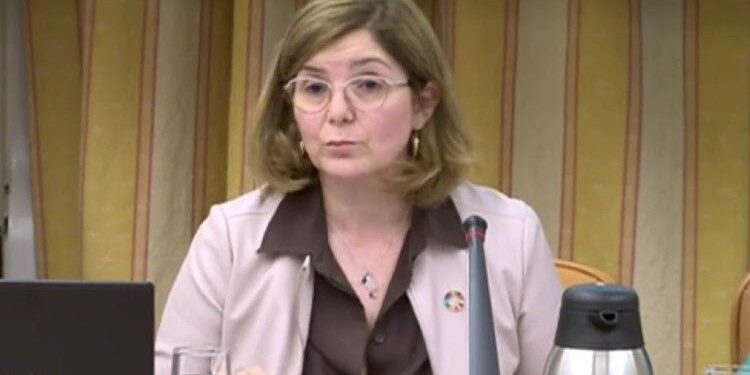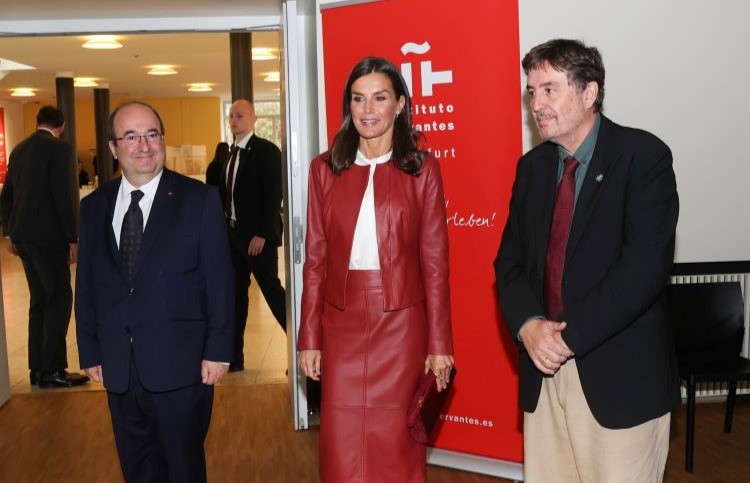Eduardo González
The General State Budget of 2023 will count as official development assistance (ODA) the 900 million euros allocated by the Ministry of Inclusion, Social Security and Migration for Ukrainian refugees in Spain, as reported yesterday by the State Secretary for International Cooperation, Pilar Cancela, who specified, however, that this crisis “does not put at risk” the ODA budget items corresponding to the Ministry of Foreign Affairs or the Spanish Cooperation.
Cancela appeared yesterday before the Commission of International Cooperation of the Congress of Deputies to explain the budgets for cooperation. According to the State Secretary, “the forecasts for total State spending on international cooperation for development in the General State Administration, the Autonomous Communities, local authorities and universities amounts to almost 4,420 million euros for the year 2023”, 0.34% of the Gross National Income (GNI), which is “28.16% more” than in the current year and represents an “exponential leap” compared to 0.28% in 2022.
This is the “largest increase in ODA since 2011, consolidating a solid upward trend in the last three years that puts us on the right track to reach the 0.7% target by 2030, as stated in the Cooperation Bill,” currently in parliamentary proceedings, she added.
The Ministry of Finance is the one that will contribute the most to ODA, with 1,306.36 million (32.33%), since it is responsible for making the obligatory contribution to the EU in the field of international cooperation. It is followed by the Ministry of Foreign Affairs, on which the Spanish Agency for International Development Cooperation (AECID) depends, which will allocate 1,118.81 million to official development assistance, 27.69% of the total and 23% more than in 2022. The AECID, Cancela specified, will have a budget of 698.23 million in 2023, 42.15% higher than the previous year, of which 587.88 million will be computed as ODA, an increase of 50.58%.
In addition, the Ministry of Economic Affairs will provide 489 million (12.10%) in contributions to multilateral financial development agencies and Health will contribute 200 million for global health. Likewise, the Ministry of Inclusion, Social Security and Migration will contribute 904 million to attend to the more than 140,000 Ukrainian refugees in Spain through the international and temporary protection programs, an amount that will also count as ODA (22.37% of the total).
In this regard, and in response to the spokesman for Unidas Podemos in the Commission, Pedro Antonio Honrubia, Cancela said that other member countries of the Development Assistance Committee (DAC) of the OECD are also including in their ODA computation the money for refugees and even Sweden, for example, “has suffered a significant decrease in its ODA funds because they have been allocated to the reception of Ukrainian war refugees”. “It is a bet and a political decision, we cannot question the allocation of funds for refugee assistance in our country,” she warned.
However, she assured, “Spain is maintaining in a categorical way that everything that is aimed at the objectives of Ukraine, whether development or refugee reception, does not affect in any way the rest of the budgets allocated to ODA in the cooperation system”. Therefore, “the commitment to ODA in the field of the Ministry of Foreign Affairs and the core of Spanish Cooperation is substantially increased, it is not at risk” by aid to refugees.
The unfulfilled legislature agreement of 0.5%
On the other hand, and in response to Honrubia’s criticisms about the breach of the Government agreement signed by the two members of the coalition, PSOE and Unidas Podemos, to reach the 0.5% at the end of the legislature, Cancela recalled that that agreement was reached in “a context in which we did not know that there was going to be a COVID pandemic or a war in Ukraine, and that obviously has a direct impact on the economic conditions and the commitments that can be assumed through the Budgets”. “Even so, the response that the Government is giving to this commitment is very important and we are on a favorable path to be able to do so,” she continued. “In any case, the legislature is not over and maybe next year we will get there,” she added.
During the rest of her speech, Cancela asked the parliamentary groups to support the new Cooperation law, which will replace the 1998 law, and thanked the “contributions and proposals” formulated by the parties in the form of amendments by the groups, which, she assured, will contribute to the law coming out of the parliamentary process improved.
In her intervention, the spokeswoman of the PP, Paloma Gázquez, warned that the budget execution of the last years casts doubt on the credibility of the budgets and warned, in this respect, that they can announce the increases they want because they are nothing more than “a blank sheet of paper which they do not execute”.







